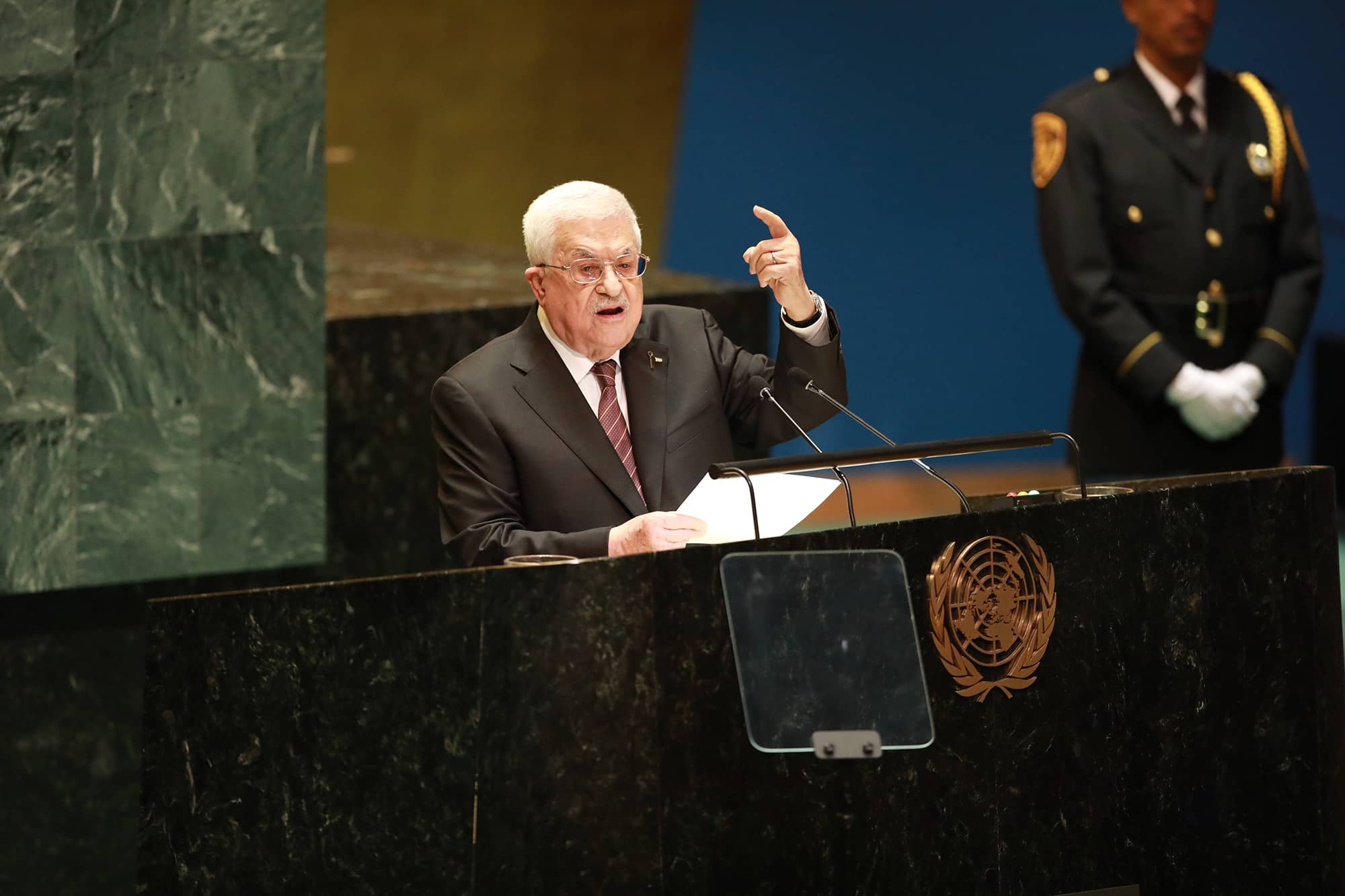The Israeli Air Force’s effective and extensive preventive strike, in the early hours of August 25, 2024, may have temporarily dampened Hezbollah’s urge to take further action in avenging the death of its military commander, Fu’ad Shukr. But as tensions continue to escalate, parts of northern Israel remain under constant fire, and attempts are being made to target Israeli assets at sea, Hassan Nasrallah’s threats to broaden the scope of the war should be met with a measured and coherent strategic response that reflects Israel’s alignment with Greece and Cyprus. His blatant (and preposterous) warning to Cyprus, along with other aspects of the ongoing effort to bring about a “unification of fronts” against Israel, serve as a reminder of the importance of Israel’s sea lanes of communication as a strategic frontier, and of its cooperation with these key Eastern Mediterranean nations – with whom it shares common threat perceptions. In both military and diplomatic terms, Israel should coordinate with its Hellenic strategic partners to bolster its capacity to protect its western flank, keep its shipping and aviation options open, and deter hostile powers, including Erdogan’s Turkey, who may seek to expand their influence.
The Mediterranean Dimension of the Tensions with Iran’s Proxies
The IDF Home Front Command’s warning to the Israeli public, in the early morning of August 25, 2024, to avoid the Mediterranean beaches – so popular at summertime – anywhere from Tel Aviv northward served as a reminder that as tensions escalate, certain types of weapons, such as drones, may approach from the north or south via the Eastern Mediterranean (0n July 18, a long range drone launched from Houthi-controlled parts of Yemen came in from the sea to Tel Aviv, killing one person). The same day, an attempt to launch a drone against a small Israeli patrol boat led to the activation of missile defense – but apparently debris from the interception hit the boat, killing a sailor on board and wounding two others, a rare loss in battle for Israel’s navy in recent years.
Meanwhile, reflecting a very different aspect of the war and its cost, Israel’s national air carrier designated Larnaca and Athens as hubs to which Israelis can fly to and from for a relatively reasonable price, thus utilizing Israel’s Eastern Mediterranean position to mitigate the consequences of other carriers refusing to fly due to growing risk. Limassol and Piraeus provide a similar function as back-up for maritime traffic. With plans underway to activate a gas pipeline to Egypt in early 2025, the strategic and economic value of Israel’s Eastern Mediterranean assets and alignments are once again coming into focus.
To all of this should be added the occasional proclamations by unfriendly Mediterranean players. President Erdogan’s Turkey has been using violent language toward Israel: the attempts to improve relations, before the war broke out, have been abandoned, and the AKP’s Islamist leaders reverted to their traditional support for Hamas. While loose talk about a Turkish military intervention need not be taken at face value, the possibility of increased pressure on Israel’s Eastern Mediterranean partners cannot be ruled out.
These varied threads need to be woven into the broader framework of a national maritime strategy and a robust Hellenic alignment aimed at responding to threats and opportunities in the Mediterranean arena. Central to Israel’s ability to rise to this challenge should be (and indeed has been) the utilization of the close cooperation built in recent years with Greece and Cyprus – which has proved its worth in the test of war.
The Implications of Hezbollah’s Threat Against Cyprus
Throughout much of August 2024, Israel has faced open threats of revenge – by Iran itself (for the death of Isma’il Haniyeh in Tehran); and by two of its proxies, the Houthis in Yemen (following the devastating Israeli retaliation against infrastructure at the port of Hodeida) and Hezbollah in Lebanon (for the assassination of Fu’ad Shukr). Amidst these tensions, the earlier fulminations of Hassan Nasrallah against Cyprus have largely faded into oblivion. Nevertheless, there are several reasons to remain – to use typical UN parlance – “seized of the matter,” not least because it was indicative of the growing arrogance of Hezbollah (and its Iranian masters). In terms of Israel’s strategy in the Eastern Mediterranean, this situation requires a proper response, closely coordinated with Cyprus and Greece.
During the speech, broadcasted on June 19, 2024 – which included a threat, welcomed by an enthusiastic crowd, that Hezbollah could capture areas in northern Israel – Nasrallah warned Cyprus that it would suffer the consequences if it allowed Israel to use air and sea bases in its territory for operations against Hezbollah in the context of an all-out war. This overt message was probably perceived by him as part of a broader campaign of intimidation designed to deter Israel, and to bring U.S. and European pressure to bear upon it to dissuade Israel’s leaders from taking the initiative to destroy Hezbollah or at least push it away from Israel’s borders.
In terms of substance, this was an insolent and impertinent act, reflecting Hezbollah’s perception of itself and of the “Camp of Resistance” as an autonomous strategic entity which can ignore Lebanon’s basic as a state. Lebanon has maintained good relations with Cyprus over the years – but following the speech (and the lack of any official disavowal, despite the open expressions of anger by many Lebanese) Cyprus felt obliged to sanction the Lebanese citizens resident on its soil. As a key agent of Iran’s rising regional ambitions, Hezbollah did not hesitate to expand the scope of potential conflict and openly threaten a member state of the European Union. The lack of effective U.S. and European action – beyond occasional strikes against sources of direct threats – in the face of the ongoing assault by the Houthis in Yemen on international shipping lane may well have colored Nasrallah’s perception of the possible reactions to his threat.
In terms of its actual content, Nasrallah’s claims were also preposterous, and largely baseless. As President Nikos Christodoulides and his spokespersons were quick to clarify, there is no scenario envisaged under which the IDF would use air or naval bases in Cyprus to launch attacks on Hezbollah. Cyprus is not a combatant, and Israel would have no need for such bases. Insofar as it may have been Nasrallah’s intent to imply that all of Israel’s ports and Air Force bases would be disabled in a future conflict, this should be viewed as yet another indication of his arrogance, and his (partly successful) effort to scare the Israeli public.
The Actual Role of Cyprus in the Current Conflict
Despite the above, it should be noted that Nasrallah’s ire does reflect an awareness that Cyprus has indeed contributed significantly to Israel’s national security in other ways in recent years, including in the present war, in ways which directly impact Israel’s ability to confront Hezbollah:
- For a number of years (though obviously, not currently) large formations of Israel’s special forces have trained in the Troodos Mountains in Cyprus – a terrain overtly chosen because of the similarity with the Mount Lebanon mountain range. The purpose of these training exercises was hardly hidden – and the Cypriot government must be well aware that they are designed to prepare the IDF for a full-scale confrontation with Hezbollah.
- The ports and airports of Cyprus – and Greece – have provided Israel with a logistical rear base, specifically since October 7, 2023, and during moments of escalation in the current war). With various national carriers and shipping corporations reluctant or afraid to service Israel, El Al and Zim – in which the government has a “golden” share, requiring them to keep their services running in an emergency – can use Larnaca and Limassol, as well as Athens and Piraeus, as hubs for travelers and goods heading to or out of Israel. If this is the kind of Israeli “usage” of Cypriot soil that Nasrallah was referring to, the scenario becomes real enough to require careful monitoring and certain defense measures (as well as a blunt deterrent message).
At the same time, Cyprus has also played a role, in close coordination with Israel (Netanyahu’s National Security Adviser, Tzahi Hanegbi, held talks in Nicosia in May 2024) in the efforts to organize a humanitarian sea lane to Gaza. Christodoulides indeed raised this point in his response to Nasrallah’s threats. The sea lane served as a point of departure for the (failed) American effort to position a floating pier on the Gaza coast – and could play a similar role if more permanent facilities are to be built in the future. It is not the concern for the fate of Gazans, therefore, which shaped Hezbollah’s posture towards Cyprus, but rather their and Iran’s drive to dominate the regional agenda and change the balance of power.
Israel’s Hellenic connection is obviously seen as an irritant by its enemies. In a broader perspective, the tripartite partnership or “alignment” of Israel, Greece and Cyprus has indeed acquired real strategic significance. The three share (as do others in the region) a common interest in countering the ambitions and ideological agenda of Erdogan’s AKP government in Turkey. Erdogan now courts Sisi –who has formed a tripartite partnership of his own with Greece and Cyprus and hopes to lure Egypt away from them. Ultimately however, the Turkish leader remains committed to the Muslim Brotherhood and Hamas and nurtures a basic hostility toward the Greek part of Cyprus and a territorial grudge against Greece. With the issue of the Exclusive Economic Zone (EEZ) delineations in the Eastern Mediterranean still unresolved (Turkey refuses to recognize that Greek islands have the right to a full EEZ and also disputes Cyprus’ EEZ), Israel, Greece and Cyprus have an ongoing interest in cooperation in the fields of energy, the economy, and response to emergencies. All three, moreover, are vibrant democracies strongly committed to what might be referred to once again as the values of the free world, as opposed to those of Islamist totalitarian forces.
What should Israel do?
While Israel’s war with Hezbollah continues, and threatens to escalate, Jerusalem’s response to the threat against Cyprus was deliberately muted, and rightly so. Building up the image of its enemy as a powerful regional player does not serve Israel’s national interest – all the more so when there are still ongoing efforts by Amos Hochstein (and the French, in parallel) to seek an agreed solution to the situation in the north. In any case, all public responses were, and should continue to be, coordinated with Cyprus, so as not force it into setting some public distance between it and Israel.
The actual response should be discreet and focused on three aspects: First and foremost, the enhancement of security cooperation with Cyprus as regards the necessary defenses against missile and drone attacks. As much as possible under wartime circumstances, capacities for detection and interception should be provided. Other regional and international powers should be involved, based on the model of joint action of April 14, 2024, against Iran. It should be recalled that Greece, Cyprus, Israel and the UAE established the “Paphos Forum” of Foreign Ministers in 2021, reflecting a common threat perception.
Cyprus is not a member of NATO (due to Turkish objections), but is under the Area of Responsibility of USEUCOM, not CENTCOM. This should not preclude the creation of a discreet structure for operational cooperation. Israel’s ongoing and intimate dialogue with the U.S. administration on aspects of the Iranian threat needs to include this question, as well as other proxy actions whose impact reaches well beyond Israel’s own interests – particularly the Houthi disruption of global trade routes (a clear casus belli in history, from 1917 to 1967). Recent events have proven that only a firm and unambiguous American response can deter Iran and its proxy system, in association with others in the so-called “CRINK” group – China, Russia, Iran, North Korea – from wreaking further havoc. In working to make this point manifest in the American political and public domain, Israel can and should mobilize the support of Hellenic diaspora communities, whose links to their Jewish counterparts have grown tighter in recent years. The global contest makes this local partnership all the more important.
JISS Policy Papers are published through the generosity of the Greg Rosshandler Family.
Photo: IMAGO / Xinhua















